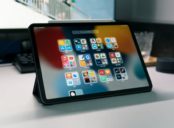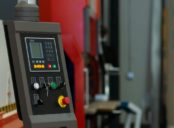Apple Inc

is a renowned multinational technology company based in Cupertino, California. It is known for manufacturing and selling a wide range of electronic devices, software, and online services that cater to the needs of both consumers and professionals. Apple was founded on April 1, 1976, by Steve Jobs, Steve Wozniak, and Ronald Wayne, with the primary aim of developing and selling personal computers.
Apple offers various types of computers, including desktops and laptops, that are commonly referred to as Macintosh or simply Mac. The Mac lineup consists of popular models such as iMac, MacBook Pro, MacBook Air, and Mac mini. Each of these computers caters to different user needs, with varying performance capabilities and design elements. iMac is a desktop computer with an all-in-one design, whereas MacBook Pro and MacBook Air are laptops suitable for professional and casual use, respectively. Mac mini, on the other hand, is a compact desktop computer that offers flexibility in terms of peripherals.
In terms of popularity, Apple computers have gained a significant market share over the years, especially among creative professionals, students, and those who prefer the macOS operating system. Apple’s computers are known for their sleek design, robust hardware, and user-friendly interface. Due to Apple’s integration of hardware and software, Mac computers offer a seamless and optimized user experience. This, combined with their advanced security features, makes Apple computers a top choice for many individuals.
When it comes to quantitative measurements, Apple’s computers have evolved over time in terms of performance and specifications. The processors used in Apple computers have transitioned from PowerPC to Intel-based processors and, more recently, to Apple Silicon, a custom-designed system-on-a-chip. These advancements have led to improved overall performance, energy efficiency, and compatibility with a broad range of applications.
Moreover, Apple computers often come with high-resolution Retina displays that offer excellent image quality and color accuracy. The storage capacity has also increased significantly, allowing users to store large amounts of data, files, and media. Additionally, the battery life in Apple laptops has improved, enabling users to work for extended periods without needing to recharge.
One notable aspect that sets Apple computers apart from their counterparts is the macOS operating system. Unlike Windows, which is commonly used in PCs, macOS offers a unique user experience and robust features tailored to the Apple ecosystem. This includes seamless integration with other Apple devices such as iPhones, iPads, and Apple Watches. Apple computers also have built-in applications like GarageBand, iMovie, and Keynote, which are well-suited for creative professionals.
Another distinguishing factor among Apple computers is their design aesthetics. Apple places great importance on creating sleek, minimalist, and visually appealing devices. Their computers often feature unibody aluminum enclosures, which not only enhance durability but also provide a premium look and feel. This attention to design detail has made Apple products highly desirable among consumers.
To understand the historical evolution of Apple computers, it is essential to consider both the advantages and disadvantages associated with different models. For instance, earlier Mac computers based on PowerPC processors offered superior performance in certain tasks, such as graphic design and video editing. However, as technology progressed, Intel-based Mac computers became the preferred choice due to their increased compatibility with a wider range of software and applications.
Furthermore, the transition to Apple Silicon represents a significant milestone in Apple’s history. By designing their own processors, Apple has achieved enhanced performance, energy efficiency, and seamless integration across their product lineup. However, this transition also introduced compatibility challenges for some software applications that were previously designed for Intel-based Mac computers. Over time, many developers have updated their applications to work natively on Apple Silicon, ensuring a smooth user experience.
In conclusion, Apple computers have become synonymous with innovation, design excellence, and premium user experiences. With a diverse range of Mac computers offering different features and performance levels, Apple caters to various consumer needs. Over the years, Apple has consistently improved its products, both in terms of hardware specifications and its proprietary software ecosystem. Whether it is for professional use or personal enjoyment, Apple computers continue to be a popular choice among individuals seeking a reliable, secure, and aesthetically pleasing computing experience.
(Article word count: 718 words)






















